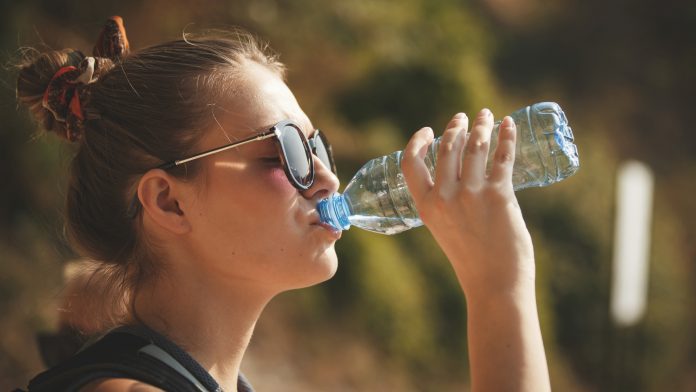
What are the key signs of dehydration? Learn everything you need to know about dehydration and its impact on the body.
Dehydration occurs when you are not consuming enough fluid, leaving the body unable to function normally. The body loses water throughout the day, through sweating, breathing, and when we go to the toilet; therefore, it is vital that regularly drinking water is a priority1.
It is crucial to monitor babies, children and the elderly during the warmer months. Ensuring at-risk friends and family members drink around six to eight glasses of fluid daily can mitigate the risk of dehydration.
Here, Health Europa outlines five signs of dehydration to watch out for during summer.
Five signs of dehydration
It is paramount, especially in summer, to know the signs of dehydration. By noticing the early warning signals, you can take action quickly to hydrate your body efficiently.
- Feeling thirsty.
- Dark yellow and strong-smelling urine.
- Feeling dizzy.
- Feeling tired.
- Peeing minimally throughout the day2.
In addition to being a baby, a child or elderly, other factors can contribute to dehydration risk. Diabetes, vomiting or diarrhoea, heatstroke, excessive alcohol consumption, sweating following exercise, a high temperature over 38C and diuretics are all risk factors that can lead to dehydration2.
Babies show different signs of dehydration, which are essential to know. If a baby has a sunken soft spot on their head, has few or no tears when they cry, has fewer wet nappies and is drowsy, this can indicate they are dehydrated.
What to do if you are dehydrated?
The NHS outlines important steps to take if you show signs of dehydration3.
Ensuring you consume plenty of fluids, including water, diluted squash and fruit juice. Tea and coffee are hydrating; however, water and other similar fluids are more effective.
If an infant or small child is presenting signs of dehydration, you should not give them large amounts of water; this can further dilute the already low level of minerals in their body too much. Diluted squash or a rehydration solution from pharmacies can be used for dehydrated children, as opposed to water.
If you or someone you know continue to show signs of dehydration, it is crucial to see your GP, who can advise your further.
References
- https://www.nutrition.org.uk/healthy-sustainable-diets/hydration/#:~:text=%20Quick%20facts%20on%20hydration%20%201%20Water,tea%20and%20coffee%2C%20can%20hydrate%20us.%20More%20
- https://www.nhs.uk/conditions/dehydration/
- https://www.nhsinform.scot/illnesses-and-conditions/nutritional/dehydration









